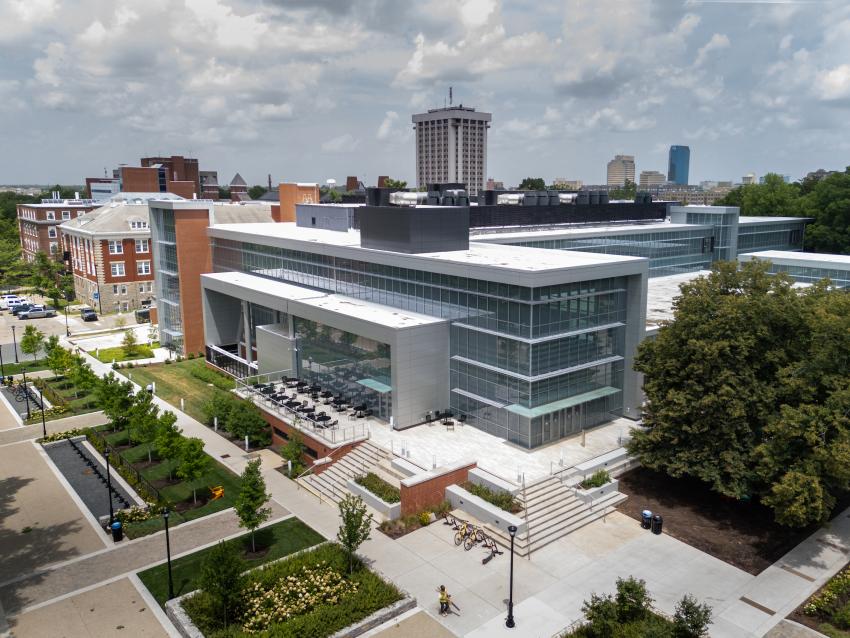
Potential Impact of Federal Research Cuts
Campus Community,
We are committed to keeping you updated on the latest information regarding executive orders from President Donald Trump’s administration, the potential impact of the executive orders on our campus, the work we do and how we are responding.
Late Friday afternoon, the federal National Institutes of Health (NIH) announced the rate for what are known as “indirect costs” would be lowered to 15% for all existing and new NIH contract awards. Earlier today, litigation was filed by multiple states challenging this decision.
If this policy change is enacted, it will impact the way we do research at the University of Kentucky. It will cost UK tens of millions of dollars annually and will hit our local and state economies. More important than any numbers, though, it will impact the work we do to advance the health of Kentucky in those areas most critical to our future — including cancer, heart disease, children’s health, Alzheimer’s and opioid use disorder.
What we are doing
- Our government relations team is in Washington again this week, meeting with our congressional delegation and others to communicate how fundamentally important and serious this issue is to our community and all those we serve through discovery and healing.
- Our cabinet, deans and other leaders are meeting regularly to confer on this and other issues to ensure we remain careful and prudent stewards of our resources — that we are moving thoughtfully to protect what we do and the future of our research enterprise.
- We are continually updating our federal policy landing page — https://pres.uky.edu/monitoring-federal-changes-2025 — with the very latest information we have on this policy directive and others that have been issued. Please refer to it regularly and utilize the email address listed if you have specific questions or concerns.
- We will, as I have communicated before, comply with all federal and state laws and policies. That is our responsibility. At the same time, we will forcefully advocate for what we do and our vital mission to advance this state — particularly its health, as Kentucky so very much needs what we do to extend hope and healing to every community in our Commonwealth.
What does this specific policy directive from the NIH mean and how are we responding?
- The NIH is the largest funder of health research in America. In the past five years the University of Kentucky — as a major health research and clinical institution — received an annual average of $159 million in NIH awards (grants and contracts).
- Those awards fund basic science research into the diseases and illnesses that most impact Kentucky: cancer, diabetes, heart disease, children’s health, aging-related illness, opioid use disorder and many others.
- Awards have two major components. There are direct costs — dollars directly associated with the scientific research in question.
- And there are indirect costs — what are often called Facilities and Administration or F&A. Those are dollars associated with the award to pay for items that make that research possible. That could be the construction and outfitting of a lab, research equipment, utilities such as ventilation, heat and lighting, associated technology and graduate students who work in the lab setting.
- That indirect cost or rate is negotiated for a period of time between an institution — like UK — and the NIH. Those rates range from 20% of the cost of a grant to 54%, depending upon the research being conducted and the terms of the award.
- For example, a $1 million grant with a 37% indirect rate would mean that $1 million directly funds research; $370,000 ultimately goes to the university to allocate to pay those support costs, like facilities, equipment, technology and personnel. The structure for how those dollars can be used is very prescribed.
- Cutting the rate to 15% — what the NIH has described as a benchmark for what private foundations that award grants provide — would cut tens of millions of dollars in essential support services to scientists and clinicians who are asking the most important questions about the biggest health challenges Kentucky faces. This one change, if enacted for the next 12 months, would represent a cut of at least $40 million to the University and its critical research efforts on behalf of the health of our state.
- Too, the comparison between a private foundation providing a grant around research in education policy, for example, simply does not involve the same cost or cost structure as a basic science grant that could include building and lab space and all the supports that go along with that infrastructure. The complicated discovery and research our investigators perform cost more than the research often funded by private foundations.
Finally, we will do as we have always done. We will remain focused on our work. We will remain committed to telling our powerful and compelling story — a story about what we do to heal and help this state. And we will continue our work as advocates for a restoration of the indirect rate for our federal grants.
That was our mission at our founding 160 years ago. It is our mission today. It will be our mission moving forward. Thank you for all you do to make that mission real and relevant for Kentucky.
Eli Capilouto
President